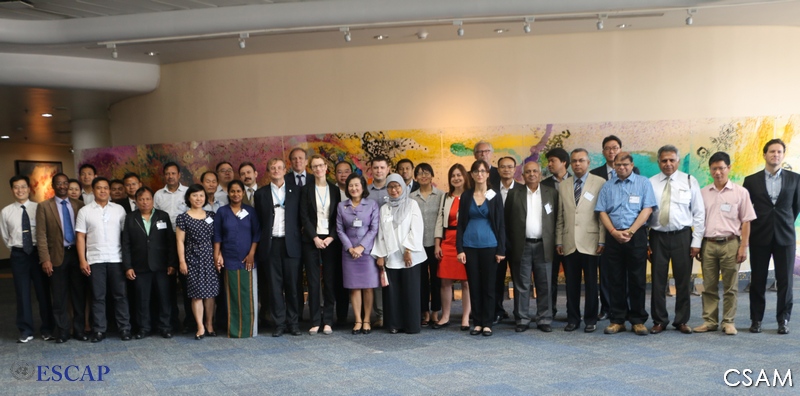Asia-Pacific countries enhance region-wide safety and quality codes to advance sustainable agriculture

Thirteen countries from the Asia Pacific region have endorsed enhanced safety and quality standards for testing agricultural machinery, at a United Nations forum in Bangkok. The improved Asian and Pacific Network for Testing of Agricultural Machinery (ANTAM) Codes will help reduce the huge social and economic costs associated with the use of unsafe and substandard farm machinery, while also improving the environmental sustainability of farming.
The Asia-Pacific region continues to experience rapid development of agricultural mechanization due to its fast-growing population and increasing food consumption demands. However, the use of unsafe and inefficient machinery also makes agriculture one of the most hazardous employment sources in the region.
Developed by a pool of regional experts in collaboration with ESCAP’s Centre for Sustainable Agricultural Mechanization (CSAM), the second edition of the Codes protects the well-being of farmers, enhances food security, and preserves the environment by promoting sustainable agricultural mechanization. The 2016 Codes include safety and quality standards of agricultural machinery such as power tillers and misters-cum-dusters. CSAM is also developing simplified and graphic-based test reports to make the Codes more accessible and understandable by farmers.
The 2nd Technical Meeting for ANTAM was held from 10 to 13 May in Bangkok. ANTAM is the first focused, regional mechanism for testing agricultural machinery which largely aligns the national standards from ESCAP member States with international codes and guidelines adopted by the Organisation for Economic Co-operation and Development (OECD), the International Organization for Standardization (IOS) and the Food and Agriculture Organization (FAO). The first set of codes for Misters-Cum-Dusters and Power Tillers was approved by 12 participating countries in Asia and the Pacific in December 2015 as a result of over 25 rounds of technical consultations.
